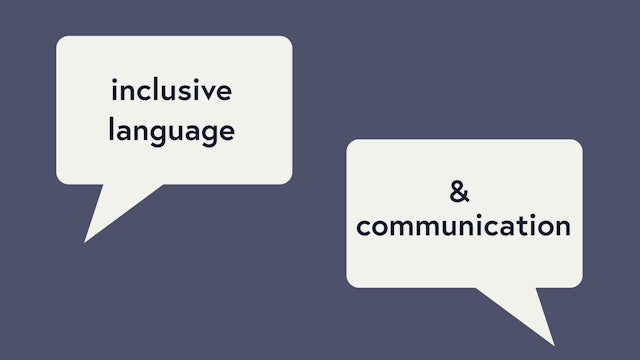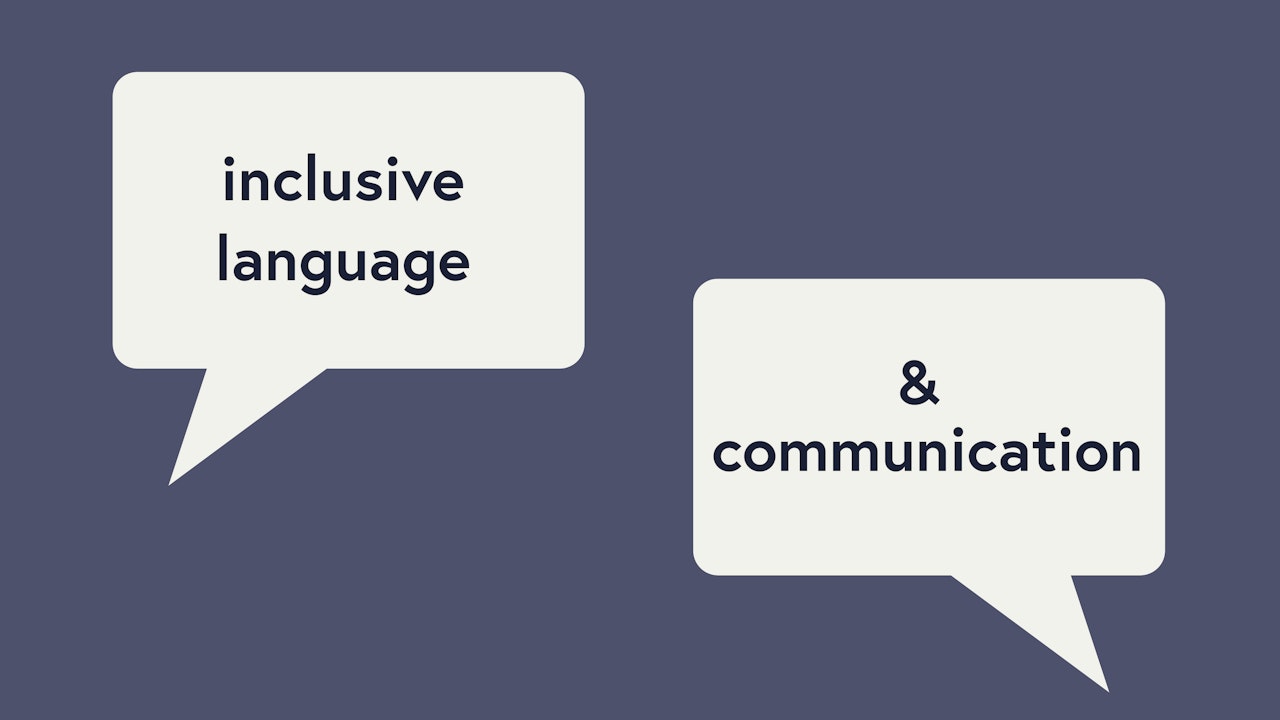-
Latinx, Latina, Latino, and Latine
The terms Latino, Latina, Latinx, and Latine are all acceptable terms to describe people whose heritage stems from the countries of Latin America, including Central America, South America, and the Caribbean. The term Latine is considered to be the most modern and inclusive of the three.
-
Best Practices for Respectful Interaction w/ People with Neurological Conditions
These considerations will help you ensure your workplace is welcoming and respectful to people with cognitive, psychological, and learning disabilities. Includes tips for communication and optimizing the physical environment.
-
How to Engage in Tough Conversations as a Marginalized Person
Learn how to handle co-worker questions related to your cultural identity, particularly if you belong to a marginalized or underrepresented group. Get wise guidance on how to gauge your interest and willingness when asked, and how to promote learning and understanding if you decide to engage.
-
Islam, Muslim, or Islamic? Religious Terminology 101
When working with Muslim colleagues and customers, it’s important to understand the difference between the words Islam, Muslim, and Islamic. Here’s a brief overview of what they mean and why that difference is important.
-
Are Gay and Homosexual the Same Thing?
In general, gay and homosexual are similar terms, but both words have evolved over time and can be misused and misunderstood for different reasons. Learn the connotations of each term so you can more respectfully address your LGTBQ+ colleagues.
-
Inclusive Language for Race/Ethnicity
Explore 3 components of cultural identity -- race, ethnicity, and nationality -- and their differences. Learn about intersectionality and why you should never make assumptions about someone’s cultural identity. Get helpful advice for asking others respectfully, if and when the topic is relevant.
-
Should I Apologize for Past Mistakes?
Apologizing for past mistakes at an individual or societal level is at the heart of civilized society. An apology is the first step in breaking the cycle of exclusion that prevents us from fully realizing democracy and our highest potential.
-
Why Does Inclusive Language Help You Grow Your Business?
Learn why inclusive language is important and how it drives business growth. Explore real-world examples and suggestions for application.
-
Should I Comment on a Colleague’s Weight Loss?
Examine the reasons you should avoid questioning or commenting to a colleague about weight loss. Consider how even well-intentioned compliments can be misinterpreted. Recognize that a person’s weight is personal and has no connection to their work performance or character.
-
Pronouns 101
Listen as Susie breaks down a few different sets of pronouns as well as what pronouns are most common in the workplace. Then, she dives into why using the phrase "preferred pronouns" is not inclusive.
-
How Do I Navigate When Someone Comes Out to Me as LGBTQ+ in the Workplace?
When someone comes out to you as LGBTQ+ you want to ensure you're not dismissive or overly congratulatory. Watch to learn a few things you shouldn't say as well as a script for getting this moment right.
-
Best Practices for Interacting with People Who Are Deaf or Hard of Hearing
Respectfully communicating and interacting with people who are Deaf or hard of hearing requires some consideration. Learn best practices for disability etiquette as they pertain to visual communication, lip reading, and sign language translators.
-
Parallels Between DEI in the Classroom and Workplace
While inclusive language has advanced in the classroom and in the workplace, it isn't in identical ways. Learn what each can learn from the other in terms of inclusion.
-
LGBTQ+ Nomenclature Simplified
Learn what LGBTQIAP2S+ means and the best acronyms to use to be the most inclusive of the entire community.
-
Principles for Inclusive Writing
Hear why having a team of diverse editors (along dimensions including age, race, ethnicity, gender, and more) is so important for inclusive writing of all styles: books, blogs, emails, ads, and so on.
-
Is it OK to Give Weight Loss Advice to My Colleagues at Work?
While it may come from a well-intentioned place, offering unsolicited health advice can come off as rude, condescending, and alienating. Here’s why you shouldn’t offer unsolicited weight loss advice to a colleague
-
What is Mansplaining and How to Avoid It
Discover the meaning of the term “mansplaining.” Learn why this way of communicating makes employees on the receiving end feel disrespected and creates a toxic company culture. Learn best practices for addressing and eliminating mansplaining behavior in your organization.
-
Should You Capitalize the W in "White?"
Learn the grammatical reasoning behind capitalizing the W in White and a brief history on the grammatical conventions of other races and ethnicities.
-
Why You Shouldn’t Say “Girl” At Work
Referring to women as “girls,” or other child-like terms, is disrespectful and undermines their workplace engagement and productivity by denying their maturity and human dignity. Learn more about infantilizing terms and how they work as microaggressions.
-
Encouraging Inclusion without Imposing Beliefs
How can you implement DEI initiatives without making people think you are trying to get them to change their foundational beliefs? In this video, Susie talks about silencing noise and building bridges to understanding.
-
What is Emotional Intelligence (EQ)?
Emotional intelligence (EQ) is the ability to understand and manage emotions effectively. People with high EQ are skilled at recognizing specific emotions, using emotional information to guide behavior, and adapting to different situations. This type of intelligence is crucial in the workplace.
-
What Tips Do You Have For Giving Feedback up the Organizational Ladder?
Learn how to give feedback up, down, and across the organization. In this video, CEO Donald Thompson, details ways employees can effectively give feedback to leaders and how leaders can effectively challenge and grow their employees.
-
Words to Avoid in Job Descriptions
When it comes to writing job descriptions, organizations can better attract a diverse pool of applicants by using inclusive, jargon-free, and non-technical language. Here are some common phrases to avoid.
-
4 Steps to Inclusive Marketing
Every day, more and more companies are seeing the business imperative for inclusive marketing. Here are four steps to creating smarter marketing strategies that will help you grow cultural competency and deliver greater share in your target markets.


























